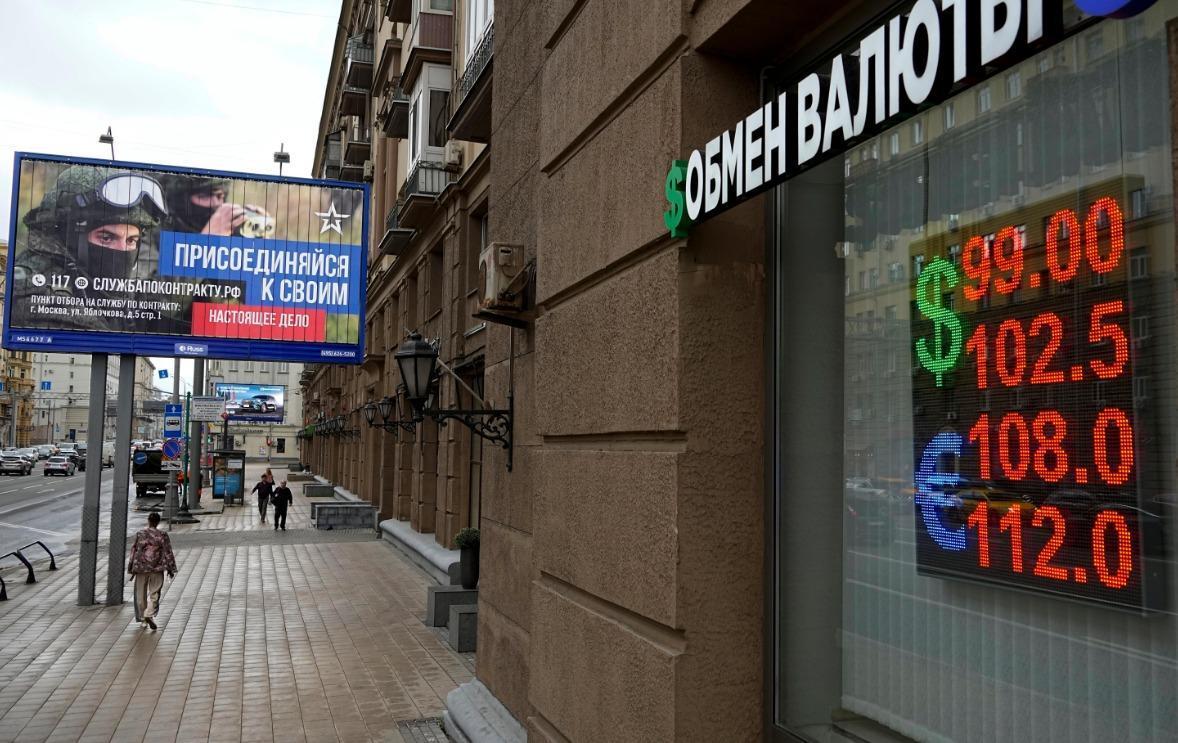Russia earns less from oil and spends more on war
MOSCOW

The Russian ruble's wobble in value has exposed a crack in President Vladimir Putin's fortress economy, a vulnerability quickly plastered over by the Kremlin's economic team in a move that allowed the currency to regain its footing, at least for now.
Yet the patch — an emergency interest rate increase — cannot hide the dilemma at the heart of the Russian economy: how to fund the military while not undermining the national currency and overheating the economy with corrosive and politically embarrassing inflation.
Life in Moscow presents a facade of normality despite sweeping sanctions tied to the war in Ukraine and the departure of hundreds of name-brand Western companies.
Outdoor seating at restaurants and bars on the popular Bolshaya Nikitskaya street were packed on a recent evening with well-dressed residents enjoying balmy August weather. Malls haven’t changed at first glance, but where Zara and H&M once stood, shoppers find new clothing brands Maag and Vilet.
Key economic gauges are also in normal ranges. Unemployment is low, economic growth is better than many had expected and inflation is moderate by Russian standards — at 4 percent in July.
Imports to Russia are rebounding as goods come through nearby countries such as Kazakhstan and Armenia, avoiding sanctions.
Government spending on the military and social programs is spreading cash to people and companies, who are using some of it on imported products.
Labor shortages, stemming from people leaving the country, also are supporting salaries.
Some blows to the economy are obvious, particularly the auto industry after Western manufacturers abandoned their Russian businesses.
But Chinese vehicle imports are gaining ground.
When it comes to the pressure on the ruble, Russia, one of the world's biggest oil suppliers, is earning less from selling its oil because of Western sanctions.
That's narrowing the country’s trade surplus with the rest of the world because Russian people and companies also are buying more products from abroad.
Earning more from exports than what is spent on imports typically supports the ruble. While the shrinking trade surplus has led the currency to steadily decline, Moscow has benefited because a weaker exchange rate actually helps the government pay its bills.
That's because dollars earned from oil can be exchanged for a larger amount of rubles to spend on government agencies, workers' wages and pensions.
But Russia's currency dipped too far for the Kremlin's liking — below 100 rubles to the dollar on Aug. 14, a psychologically important level.
It prompted the central bank to carry out a large emergency interest rate hike of 3.5 percentage points aimed at cooling local demand for imports.
Thanks to oil earnings, the government has negligible debt and robust reserves, though about half of that stockpile has been frozen by sanctions.
Longer term, however, Russia's economy is facing a “slow burn” under pressure from sanctions and Putin's war spending, said Robin Brooks, chief economist with the Institute of International Finance.
In the short term, the ruble's decline is “not a sign that Russia is about to run into a major financial crisis,” says Chris Weafer, CEO and Russian economy analyst at consulting firm Macro Advisory Partners.
















